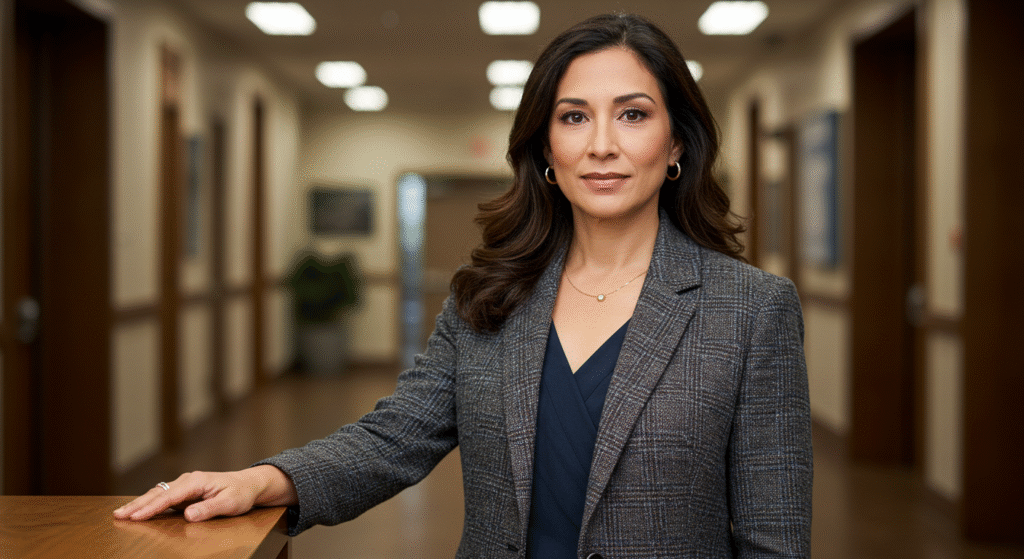Who Is Malia Manocherian?
Malia Manocherian is an influential figure in New York City’s real estate and philanthropic circles. Known for her work as a principal at The Manocherian Organization, she plays a significant role in managing and developing residential properties across Manhattan. But beyond real estate, Malia has emerged as a philanthropist and civic advocate, focusing on causes such as public safety, social justice, and community welfare.
This article delves into Malia Manocherian’s career, her social initiatives, and her broader influence in shaping conversations around urban living and civic responsibility in New York.
Background and Family Legacy
Malia Manocherian comes from a prominent family with deep roots in Manhattan’s real estate industry. The Manocherian family has owned and managed high-end residential properties in New York for decades, and they are widely recognized for their commitment to quality, tenant satisfaction, and urban development.
As part of this legacy, Malia was positioned early on to continue the family’s influence—not only through business leadership but also through philanthropic engagement and public discourse.
Role in The Manocherian Organization
Malia holds a leadership position in The Manocherian Organization, a well-known property management and development firm. The organization owns and operates residential buildings throughout New York City, including some of the most sought-after rental properties in Manhattan.
Under her leadership, the company has continued to emphasize:
-
Tenant-first policies
-
Sustainable development
-
Modernization of historic properties
-
Community safety and welfare
While the organization operates privately, its buildings are noted for blending luxury with livability, and Malia’s influence is evident in efforts to adapt traditional real estate practices to meet contemporary urban needs.
Advocacy and Public Safety
Beyond her work in real estate, Malia Manocherian has gained attention for her advocacy on public safety issues in New York City. In recent years, she has become a vocal supporter of police reform and has participated in conversations around balancing safety, justice, and accountability in urban environments.
Emphasis on Community Security
Malia has emphasized that public safety is not merely a policing issue—it involves:
-
Mental health support
-
Fair housing access
-
Community engagement
-
Judicial transparency
Through interviews, panel discussions, and civic engagement, she has encouraged a nuanced dialogue that addresses both the need for safe neighborhoods and reform of systems that perpetuate inequality.
Philanthropic Work
Malia Manocherian is actively involved in various philanthropic initiatives, both independently and through family foundations. Her efforts are centered around:
1. Social Justice
She supports initiatives focused on racial equity, criminal justice reform, and improving the lives of underserved populations in New York.
2. Housing and Homelessness
Recognizing the housing crisis in NYC, Malia has contributed to programs aimed at:
-
Preventing homelessness
-
Providing transitional housing
-
Offering vocational training for at-risk individuals
3. Health and Wellness
The Manocherian family has historically supported health-related causes, and Malia has continued this tradition by investing in mental health resources and urban wellness programs.
Media and Public Engagement
Malia Manocherian has appeared in several local news features, podcasts, and community forums, discussing urban policy, housing trends, and civic responsibility. She is respected for offering a measured, informed perspective that draws from both her real estate background and her community engagement.
Her style of leadership is collaborative and socially conscious, often bridging gaps between private enterprise and public service.
Influence in New York Real Estate
While she does not always seek the spotlight, Malia Manocherian has had a quiet yet consistent influence on New York’s real estate evolution. Her contributions include:
-
Promoting responsible property management
-
Advocating for tenant protections
-
Supporting green building initiatives
-
Encouraging dialogue between landlords, tenants, and city officials
These efforts help shape a vision of equitable urban living—an increasingly important goal in post-pandemic city planning.
Personal Values and Leadership Style
Colleagues and associates describe Malia as:
-
Thoughtful
-
Strategic
-
Civically aware
-
Empathetic
Her leadership reflects a blend of business acumen and humanitarian concern, which is becoming increasingly valuable in industries like real estate that directly impact people’s lives.
She frequently emphasizes the role of dialogue, data, and long-term thinking in making decisions that affect entire communities.
Challenges and Public Response
In the course of her advocacy, especially on matters like public safety and real estate development, Malia has faced some criticism and controversy, particularly in the polarized landscape of NYC politics. However, her response has been marked by transparency and ongoing engagement rather than retreat.
She has called for cooperative approaches to problem-solving and has remained active in citywide initiatives regardless of political backlash.
Future Outlook
As cities like New York continue to evolve, Malia Manocherian’s role as both a real estate executive and a public advocate will likely expand. Her work suggests a vision for:
-
More equitable urban development
-
Stronger partnerships between private and public sectors
-
Safer, more inclusive communities
She represents a new generation of civic-minded real estate professionals who see their roles as stewards—not just owners—of the communities they help build.
Conclusion
Malia Manocherian exemplifies what it means to be a modern leader in urban development and philanthropy. Balancing her real estate legacy with progressive civic engagement, she has carved out a space where business, community, and activism meet.
In an era where cities are grappling with complex social and economic challenges, her voice and work provide a valuable model for ethical, inclusive leadership.







